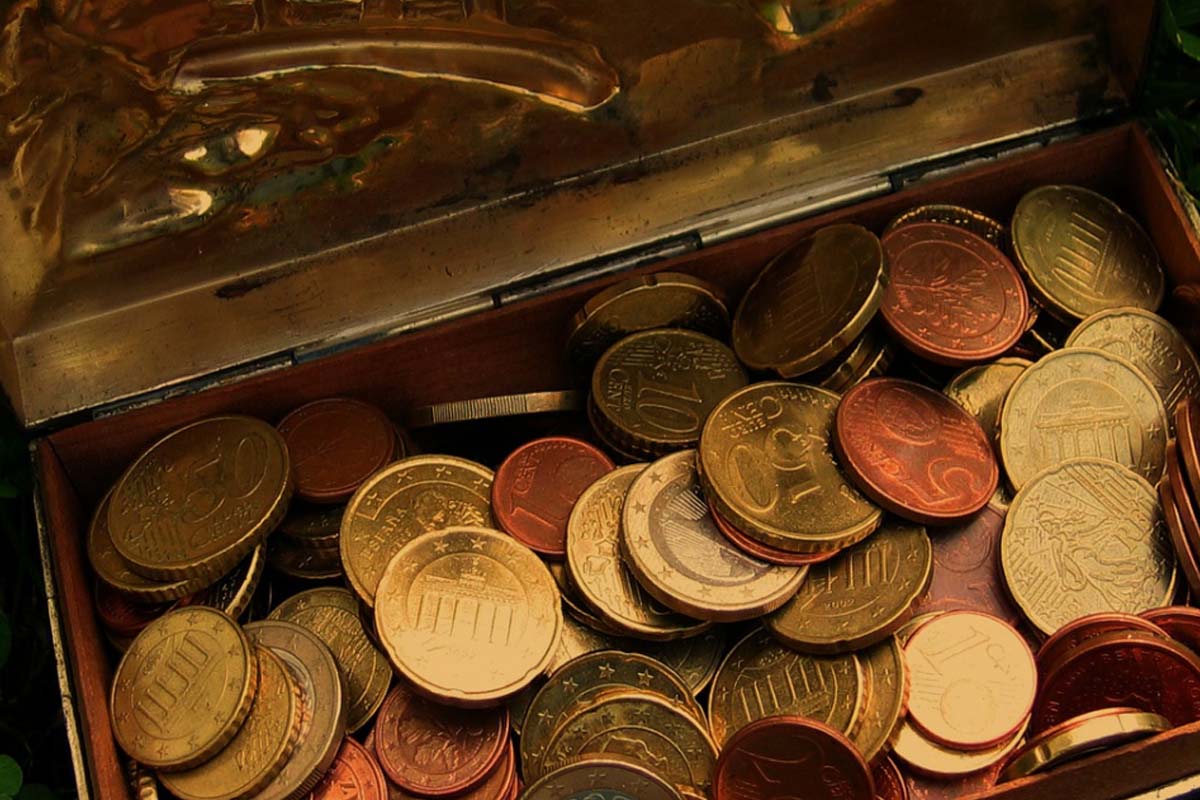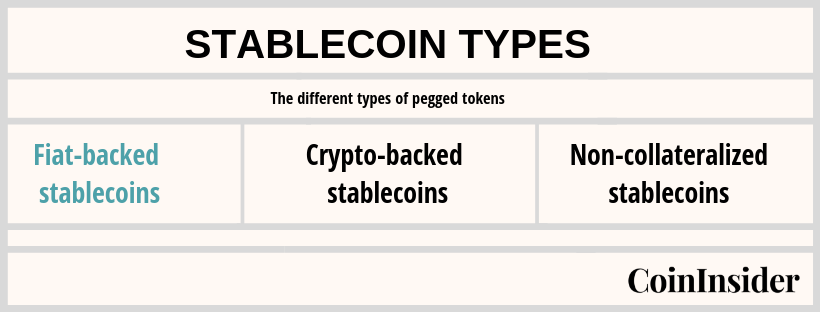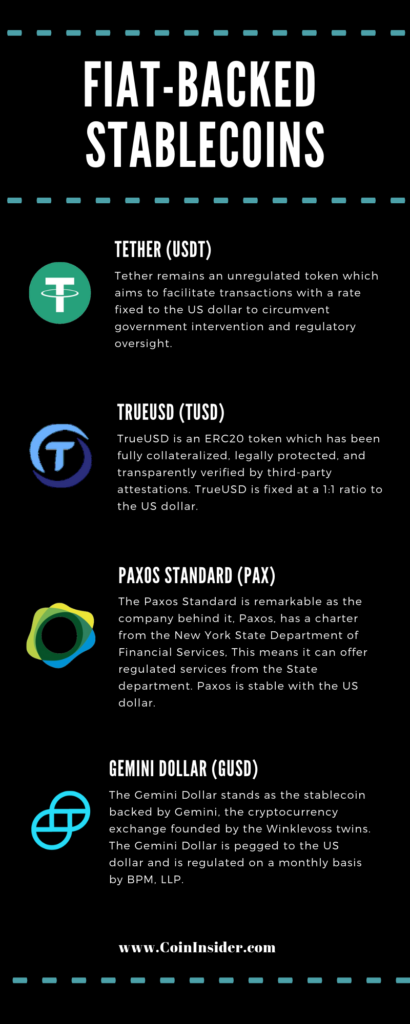How To Identify Fake Cryptocurrency And Avoid Scams
How To Identify Fake Cryptocurrency And Avoid Scams

Cryptocurrencies are praised for paving the way for decentralized, peer-to-peer methods of tender and blockchain-based currencies are promising to take electronic money to the next level. There are several obstacles which are blocking the path to widespread adoption and might hinder the support that national governments have regarding cryptocurrencies.
One of the biggest issues that tokens face is the extreme volatility of market capitalization and price swings.
This has led to the development of the proverbial pot of digital gold: Stablecoins.
A stablecoin is a cryptocurrency token which has its value pegged at a 1:1 to a stable asset, such as gold or a fiat currency like the US dollar. The fundamental point of a stablecoin is to hold its pegged value, despite the twists and turns of volatility that the cryptocurrency market faces otherwise.
There are three types of stablecoins, namely:

Read more: A full overview of stablecoins
While cryptocurrency-backed and non-collateralized stablecoins exist and are gaining traction, the most common – and by far the most well-known – stablecoins are the fiat-backed cryptocurrencies; pegged to a national currency.
As the name implies, fiat stablecoins are tokens which are associated with the value of a particular fiat currency. Usually, these tokens are based on the US dollar and hold their value fixed at a 1:1 ratio.

Arguably the most well-known stablecoin and – at the time of writing – one of the top ten cryptocurrencies, Tether is pegged to the US dollar. Daily, Tether sees an average trading volume of $4 billion USD, making it the largest stablecoin in daily volume and market cap. Tether has a close association with cryptocurrency exchange Bitfinex, sharing the same CEP.
Tether has gained a lot of criticism owing to its lack of transparency in its methodology, as well as the lack of any official auditing of the token. This, in addition to centralization issues that arise despite the decentralized nature of cryptocurrencies. The token also has been condemned by users who claim that Tether manipulated the price of Bitcoin by creating newly printed USDT tokens.
However, there are some controversies surrounding Tether as there is a lack of transparency in whether USDT is fully backed by the equivalent fiat reserves. While Tether claims that their USD fiat reserves are sufficient to back all the issued USDT tokens on a 1-to-1 basis, many critics have been challenging this claim. Many critics believe Tether company has issued more USDT tokens than its dollar reserves in its bank account. They also claim that Tether management team have been artificially pumping bitcoin price with all the newly printed Tethers.
Where Tether gets criticized for its lack of transparency and centralization, TrueUSD gets praise for being open in their legal operations. The TrueUSD team has also set up an escrow account – to which they have no access – for users to exchange US dollars into TUSD tokens. This alleviates claims of centralization and the smart contracts in place also helps in maintaining the 1 US dollar: 1 TUSD ratio.
The Paxos Standard was founded in 2012 by Paxos Trust Company. The stablecoin exists on Ethereum’s blockchain as an ERC-20 token and can be stored in any ERC-20 compatible wallet. As Paxos is pegged to the US dollar, PAX tokens can only exist in circulation while corresponding dollars are held in reserve. If the PAX tokens are exchanged to dollars, the corresponding stablecoins are destroyed to avoid any fluctuation in price.
The Gemini Dollar is backed and founded by the Winklevoss twins’ cryptocurrency Gemini. The token is therefore issued by Gemini Trust Company, LLC, a New York trust company and has been allowed and is regulated by the New York State Department of Financial Services. The Gemini Dollar also exists as an ERC-20 token and one token is redeemable for $ 1 USD on the Gemini exchange.
How To Identify Fake Cryptocurrency And Avoid Scams
10 Reasons Why You Should Invest In Crypto
What Is The Future Of Cryptocurrency? Top Trends To Watch
Who Accepts Cryptocurrency And Bitcoin